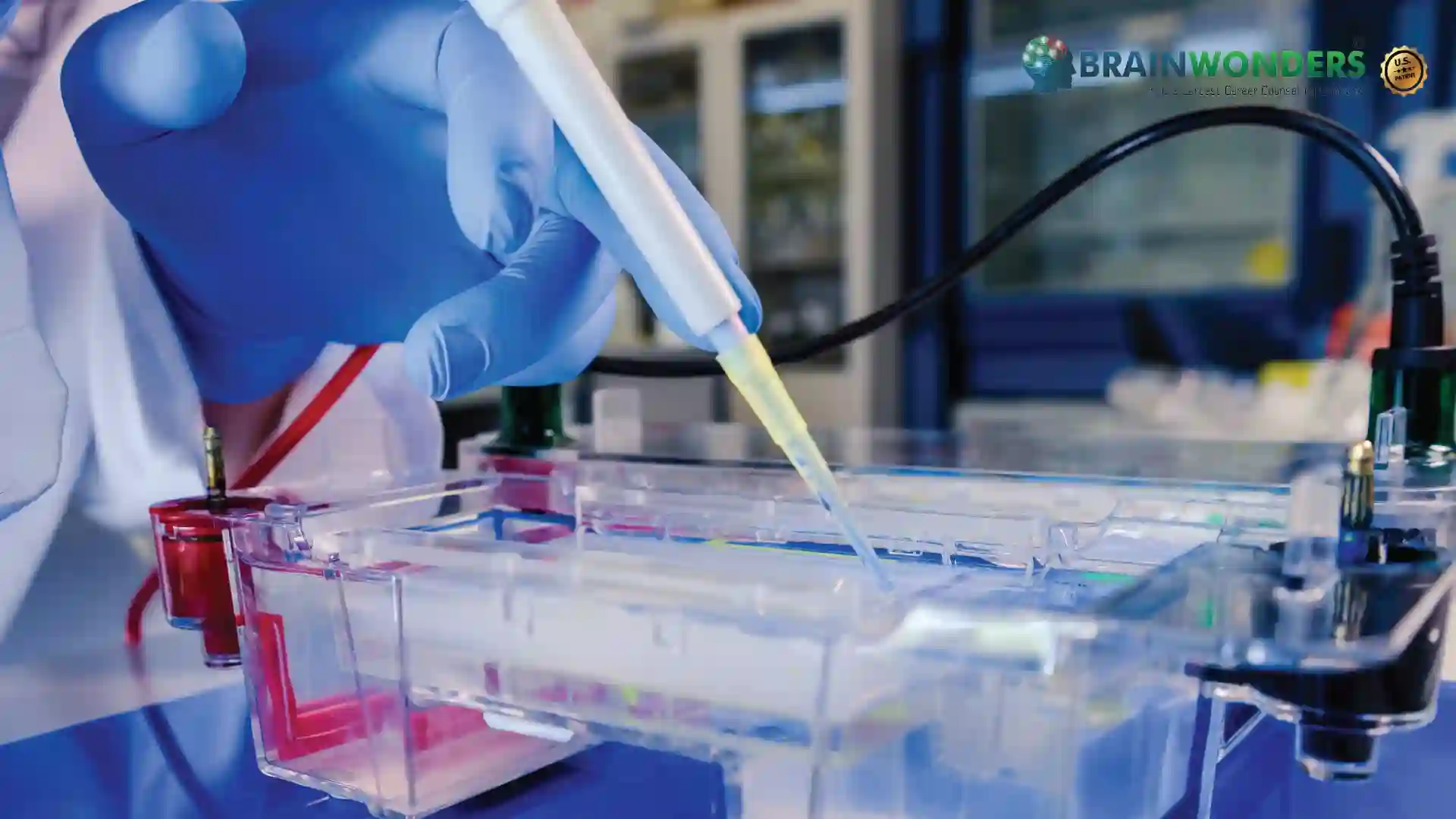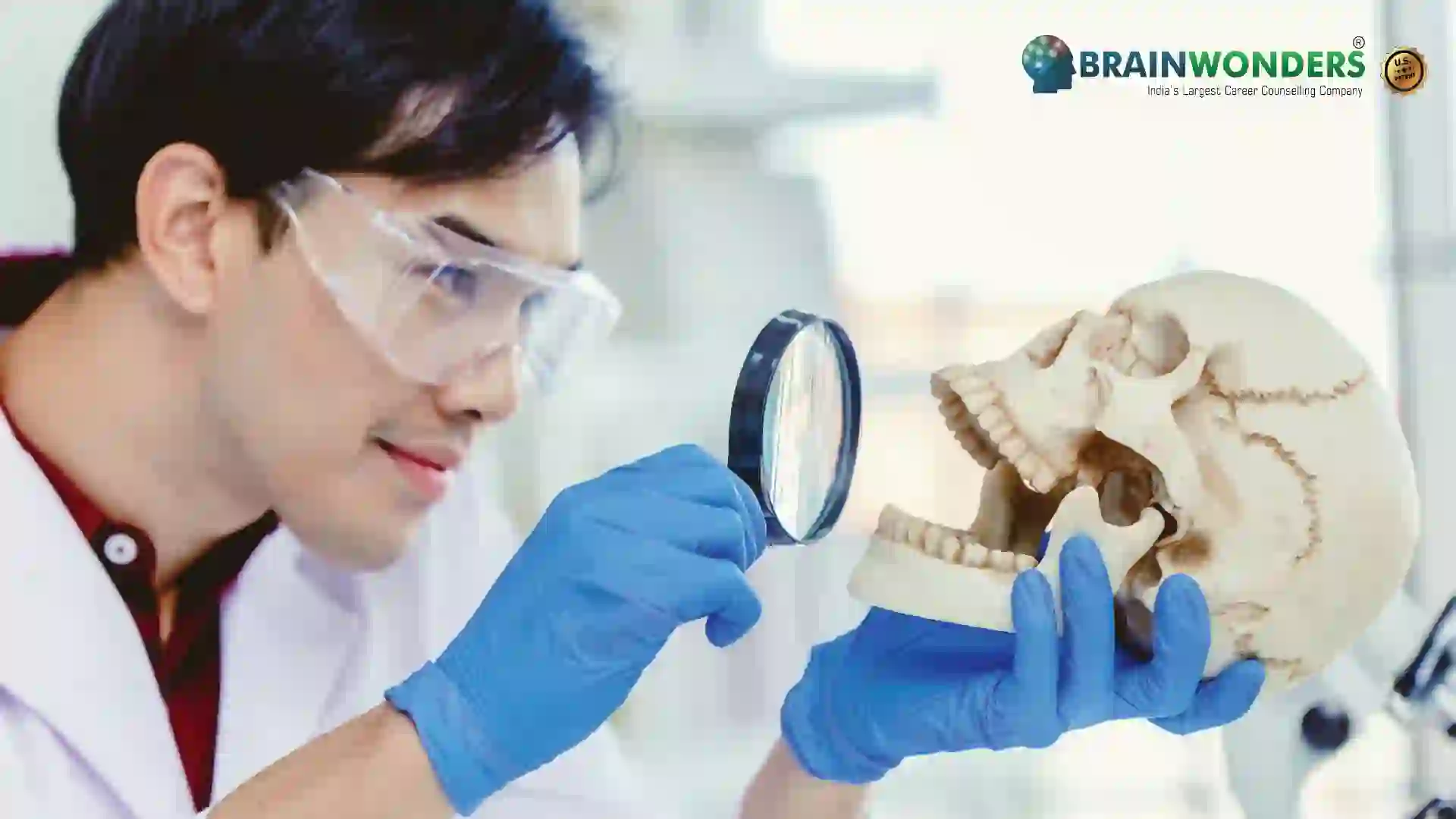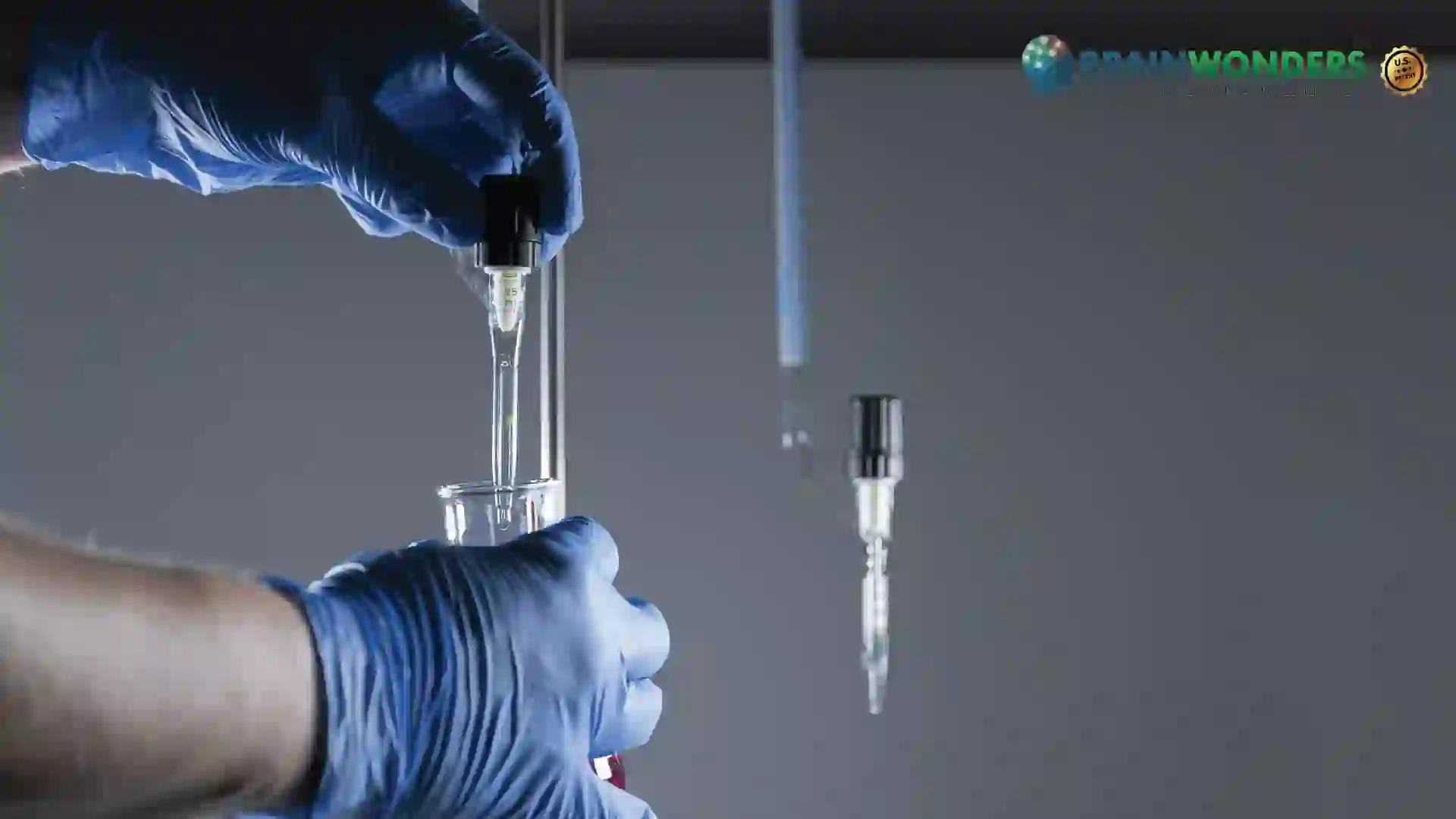How to become a Molecular and Cellular Biologist
Overview, Courses, Exam, Colleges, Pathways, Salary

Overview
Who is Molecular and Cellular Biologist ?
Molecular cell biology is a branch of biology, which is a relatively new field compared to other fields of study. Cellular and molecular biology is an evolving interdisciplinary field, which aims to link varied fields of chemistry, structure, and biology. Molecular and Cellular Biologists are responsible for studying and researching the structure, properties, processes, and functions of cellular molecules and organelles.
Research and study cellular molecules and organelles to understand cell function and organization. Molecular and cellular biologists typically perform research and maintain accurate laboratory records and data. Create, execute or oversee and analyze molecular or cellular laboratory experiments. This field is often closely linked with biochemistry, in which the chemical reactions of biological molecules are looked at.
Typical day at work
What does Molecular and Cellular Biologist do?
- Maintain accurate laboratory records and technical and scientific database
- Design experiments, supervise their execution, and interpret results
- Accumulate and examine experimental data and modify experimental designs as necessary
- Conduct research on cell organization and function, comprising mechanisms of gene expression, cellular bio-informatics, cell signaling, or cell differentiation
- Teach, supervise, and mentor technical personnel and postdoctoral research fellows
- Perform laboratory procedures like deoxyribonucleic acid (DNA) sequencing, cloning and extraction, ribonucleic acid (RNA) purification, or gel electrophoresis
- Direct, manage, organize, or prioritize laboratory activities
- Prepare reports, documents, and presentations
- Check and operate specialized equipment like gas chroma-tographs and high pressure liquid chroma-tographs, electrophoresis units, thermocyclers, fluorescence activated cell sorters, and phosphorimagers
- Develop research methods that monitor cell characteristics
- Assess new technologies to enhance or complement current research
- Provide scientific direction for the evaluation or handling of devices, drugs, or cells for in vitro and in vivo disease models
- Devise guidelines for procedures for the management of viruses
- Gauge new supplies and equipment to ensure operability
- Authenticate the planned use of all financial, physical, and human resources assigned to research or projects
- Conduct research aimed at developments in areas of disease testing, crop quality, pharmaceuticals, and the harnessing of microbes to recycle waste
- Participate in the development of bio-product like proposing new products, conducting market analyses, designing and performing experiments, and collaborating with operations and quality control teams during product launches
- Design molecular or cellular laboratory experiments, oversee their execution, and interpret results
- Compile and analyze molecular or cellular experimental data and adjust experimental designs as necessary
- Conduct research on cell organization and function, including mechanisms of gene expression, cellular bio-informatics, cell signaling, or cell differentiation
- Supervise technical personnel and postdoctoral research fellows
- Direct, coordinate, organize, or prioritize biological laboratory activities.
Abilities and Aptitude needed
What are the skills, abilities & aptitude needed to become Molecular and Cellular Biologist?
- Along with understanding how to operate and set up complex laboratory machinery, molecular and cellular biologists should value precision and be comfortable working with equipment that requires careful monitoring.
- They tend to be investigative, intellectual, introspective, and inquisitive individuals. They are curious, methodical, scientific, rational, and analytical. They must be able to manage time and prioritize tasks effectively while maintaining the quality of work.
- They must follow exact instructions so that the tests or procedures are performed correctly. They need to be skilled with their hands and work closely, safely, and effectively with needles, chemicals, and other laboratory instruments.
- They must also practice all standard safety procedures and quality control principles in the laboratory and understand and abide by legal and health care procedures.
- Molecular and Cellular Biologists should be able to effectively communicate, both verbally and in writing, their research processes and findings. They usually work in or lead research teams and must be able to motivate and direct other team members, thus, interpersonal skills are necessary.
- In order to conduct and monitor scientific experiments and analyses with accuracy and precision, Molecular and Cellular Biologists must have excellent observational skills and be detail-oriented in their approach. Because research involves trial and error, students will need to be patient and not grow discouraged during their work. They will also need to be creative in their thinking.
- They need to have logical reasoning, critical thinking, and problem-solving skills to find solutions to complex scientific problems and draw conclusions from experimental results through sound reasoning and judgment.
Salary
Salary for Molecular and Cellular Biologist?
Salary of a A Molecular And Cellular Biologist is as follows :
- Minimum Monthly Salary for an Entry-Level Molecular and Cellular Biologist: The starting salary for an entry-level Molecular and Cellular Biologist can vary based on location, industry, and experience level. In India, novice Molecular and Cellular Biologists might earn approximately INR 15,000 to INR 25,000 per month as they begin their careers in research and scientific exploration.
- Maximum Monthly Salary for Experienced Molecular and Cellular Biologists: Experienced Molecular and Cellular Biologists, particularly those with advanced degrees, specialized expertise, and a track record of impactful research, have the potential to earn a higher monthly salary. Their earnings could range from approximately INR 40,000 to INR 1,00,000 or more, reflecting their advanced scientific skills and significant contributions to the field.
- Annual Salary Range for Junior and Accomplished Molecular and Cellular Biologists: With limited experience, Junior Molecular and Cellular Biologists anticipate a yearly salary ranging from approximately INR 2.4 lakhs to INR 3.6 lakhs. As Molecular and Cellular Biologists accumulate substantial expertise, publish research findings, and excel in their scientific investigations, they can aim for an annual income from INR 6 lakhs to INR 12 lakhs or beyond.
- Highest-Paying Job Opportunities and Scope: Lucrative employment prospects for Molecular and Cellular Biologists are often available in research institutions, universities, biotechnology companies, pharmaceutical firms, and government research agencies. Biologists specializing in specific areas such as genetics, molecular biology, cell signalling, or drug development tend to have a higher earning potential. The scope of molecular and cellular biology is promising, as biologists play a critical role in advancing our understanding of fundamental biological processes and developing solutions for medical, environmental, and agricultural challenges. With the continuous advancement of scientific research and the integration of molecular and cellular biology into various industries, the demand for skilled Molecular and Cellular Biologists is expected to rise significantly. This growth offers substantial opportunities for career advancement, specialization, and groundbreaking contributions to the scientific community.
Pathways
How to become an Molecular and Cellular Biologist?
Entrance Exam
Entrance Exam for Molecular and Cellular Biologist ?
Courses
Which course I can pursue?
Best Colleges
Which are the best colleges to attend to become an Molecular and Cellular Biologist?
Industries
Which Industries are open for Molecular and Cellular Biologist?
Molecular and Cellular Biologists possess specialized skills and knowledge in studying cellular processes, genetics, and molecular mechanisms. They are in demand across various industries involving scientific research, development, and innovation. Here are some sectors that often require the expertise of Molecular and Cellular Biologists:
- Academic and Research Institutions: Molecular and Cellular Biologists are extensively employed in universities, colleges, and research institutes to conduct fundamental research, advance scientific knowledge, and contribute to academic programs.
- Biotechnology Companies: Biotech firms hire Molecular and Cellular Biologists to research and develop new drugs, therapies, and biotechnological products.
- Pharmaceutical Industry: Molecular and Cellular Biologists contribute to drug discovery, target identification, and preclinical studies in pharmaceutical companies.
- Medical Research: Biologists are essential in medical research organizations, working on understanding diseases at the molecular level and developing diagnostics and treatments.
- Genomics and Genetics Companies: In companies focusing on genetic testing, gene sequencing, and personalized medicine, Molecular and Cellular Biologists analyze genetic data and contribute to advancements in genomics.
- Biomedical Engineering: Molecular and Cellular Biologists collaborate with engineers to develop medical devices, prosthetics, and biotechnological tools.
- Agriculture and Agribusiness: Biologists may work on improving crop yield, pest resistance, and genetic modification of plants for agricultural sustainability.
- Environmental Science and Conservation: Biologists contribute to understanding environmental factors, pollution effects, and conservation efforts through molecular and cellular analyses.
- Forensics and Crime Investigation: In forensics, Molecular and Cellular Biologists analyze DNA evidence to aid in criminal investigations and identify individuals.
- Healthcare and Clinical Laboratories: Biologists are employed in clinical labs for diagnostic testing, analyzing patient samples, and conducting medical research.
- Government and Regulatory Agencies: Regulatory bodies may employ Molecular and Cellular Biologists for policy-making, safety assessments, and oversight of biotechnological products.
- Vaccine Development: Biologists are crucial in developing and testing vaccines for infectious diseases.
- Nutrition and Food Industry: Biologists may contribute to analyzing the nutritional content of food, genetically modified organisms, and food safety.
- Cosmetics and Personal Care: Biologists play a role in testing the safety and efficacy of cosmetic and skincare products.
- Scientific Publishing and Communication: Biologists can work as science communicators, educators, or writers, translating complex research findings for public understanding.
internship
Are there internships available for Molecular and Cellular Biologist?
Molecular and Cellular Biologists possess specialized skills and knowledge in studying cellular processes, genetics, and molecular mechanisms. They are in demand across various industries involving scientific research, development, and innovation. Here are some sectors that often require the expertise of Molecular and Cellular Biologists:
- Academic and Research Institutions: Molecular and Cellular Biologists are extensively employed in universities, colleges, and research institutes to conduct fundamental research, advance scientific knowledge, and contribute to academic programs.
- Biotechnology Companies: Biotech firms hire Molecular and Cellular Biologists to research and develop new drugs, therapies, and biotechnological products.
- Pharmaceutical Industry: Molecular and Cellular Biologists contribute to drug discovery, target identification, and preclinical studies in pharmaceutical companies.
- Medical Research: Biologists are essential in medical research organizations, working on understanding diseases at the molecular level and developing diagnostics and treatments.
- Genomics and Genetics Companies: In companies focusing on genetic testing, gene sequencing, and personalized medicine, Molecular and Cellular Biologists analyze genetic data and contribute to advancements in genomics.
- Biomedical Engineering: Molecular and Cellular Biologists collaborate with engineers to develop medical devices, prosthetics, and biotechnological tools.
- Agriculture and Agribusiness: Biologists may work on improving crop yield, pest resistance, and genetic modification of plants for agricultural sustainability.
- Environmental Science and Conservation: Biologists contribute to understanding environmental factors, pollution effects, and conservation efforts through molecular and cellular analyses.
- Forensics and Crime Investigation: In forensics, Molecular and Cellular Biologists analyze DNA evidence to aid in criminal investigations and identify individuals.
- Healthcare and Clinical Laboratories: Biologists are employed in clinical labs for diagnostic testing, analyzing patient samples, and conducting medical research.
- Government and Regulatory Agencies: Regulatory bodies may employ Molecular and Cellular Biologists for policy-making, safety assessments, and oversight of biotechnological products.
- Vaccine Development: Biologists are crucial in developing and testing vaccines for infectious diseases.
- Nutrition and Food Industry: Biologists may contribute to analyzing the nutritional content of food, genetically modified organisms, and food safety.
- Cosmetics and Personal Care: Biologists play a role in testing the safety and efficacy of cosmetic and skincare products.
- Scientific Publishing and Communication: Biologists can work as science communicators, educators, or writers, translating complex research findings for public understanding.
Career outlook
What does the future look like for Molecular and Cellular Biologist?
- Molecular and Cellular Biologists usually work in clean and organized laboratories. They work as laboratory team members and are under the supervision of a pathologist.
- They can work for, hospitals, doctors' offices, clinical pathology labs, veterinary services, private research labs, pharmaceutical companies, government agencies, private medical laboratories, public health facilities, educational institutions, or forensic pathology.
- They often work 8-hour shifts; however, the shifts may be flexible. Technologists can be asked to work overtime at times. They are usually seated looking through microscopes.
- Job prospects for Molecular or Cellular Biologists have been improving steadily since 2004, according to the Bureau of Labor Statistics. During that time period, the number of available positions in this field expanded by 16.23 percent nationwide, with an average annual growth rate of 2.71 percent. There will be an increase in demand for Molecular and Cellular Biologists, with a projected increase of 7,170 new jobs filled by 2018. Over the following three years, this indicates a 2.95 percent yearly increase in the cost of living.







